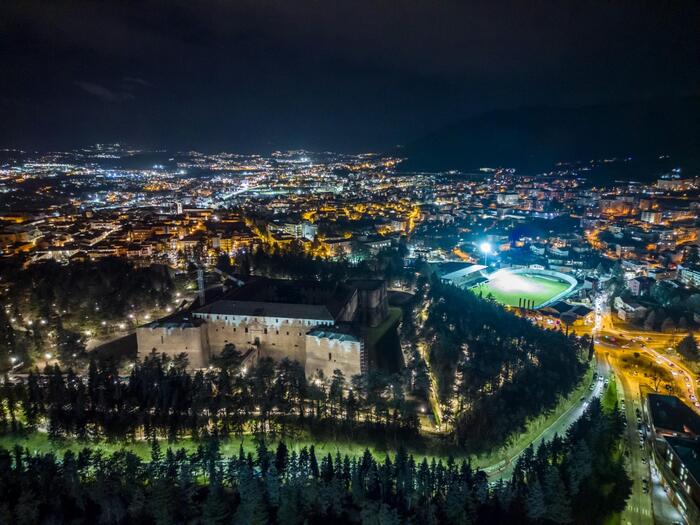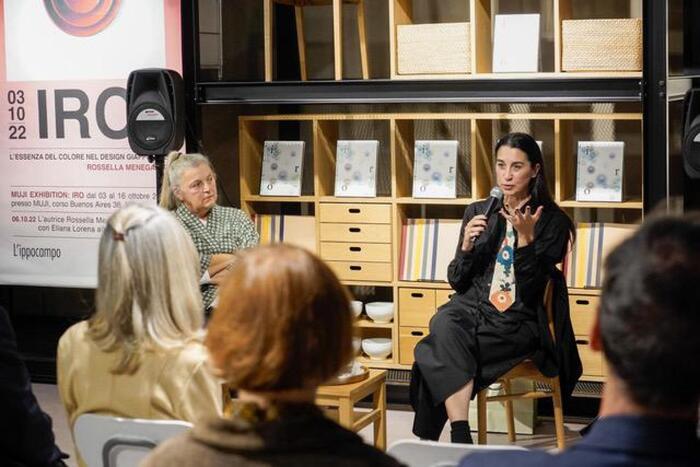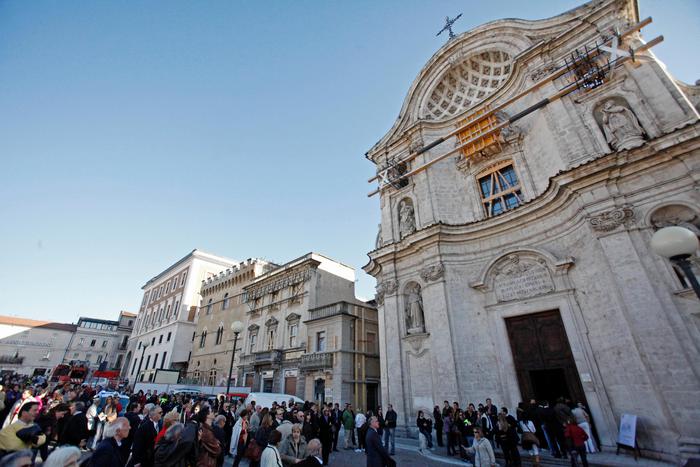Icon: enlarge
Old town hall in Chemnitz:
Photo: Henryk Sadura / Getty Images
At a time when you cannot imagine what will be in five days, it is very pleasant to think five years ahead.
Then the worst virus wave should have ebbed and you could go out again and discover something.
Chemnitz, for example.
It has been clear since Wednesday noon that Chemnitz will be one of two European Capitals of Culture in 2025.
So a nice question arises for long evenings: In five years in Chemnitz, what will I do first?
Today's announcement event for the German Capital of Culture could be seen live on YouTube and had its everyday poetic side.
For example, the sentence "Without people, there is no culture" - you can meditate on that too, if you wait at the dentist until the anesthesia works or nothing else is there.
There were advertisements in all applicant cities, except for the winning city, those were Hildesheim, Hanover, Nuremberg and Magdeburg.
But then the next stop: Chemnitz.
The losing cities were properly comforted in unctuous words, it sounded as if their collective demise was imminent.
In this country, such events always turn out to be official acts with a secular sermon: First of all, mention all those responsible and say thank you.
Then he thanked them in a big way
The whole construction of the culture capital finding is quite complicated, like the whole German cultural administration.
It was explained to us, but only insiders could understand it.
The Bavarian Minister of Education, Bernd Sibler, shortened it by reassuring us viewers: Those in charge are responsible and will take care of it, he summed up accordingly.
Then he thanked them in a big way.
The institution of the European Capital of Culture was conceived by the Greek Minister of Culture and actress Melina Mercouri.
Athens was the first European cultural city in 1985 - then Chemnitz was still called Karl-Marx-Stadt.
Seen in this light, today is an occasion for a happy retrospective, it has been a long journey and Europe has bravely mastered it.
Whether the Capitals of Culture helped a lot is another question.
In his current book "Great Expectations", the Dutch writer Geert Mak paints a critical picture of the whole event.
He observed up close how the Frisian Leeuwarden was chosen for 2018.
Mak describes a traveling marketing and expert circus who sell the cities concepts for a lot of money that are well received in Brussels, but largely ignore the population.
The head of the Frisian capital of culture event awarded himself the title of CEO.
The sympathetic idea of a cultural upgrading of medium-sized cities disappeared behind a complex, money-contaminated process.
Mak writes of a "hurricane effect": all funds were shifted years before the big event.
Someone thought of equipping eleven Frisian cities with a new fountain each, for which eleven artists from all over Europe had been commissioned: "The whole thing had only one flaw: nobody had wanted anything like it."
More attention, more money for culture, more European cohesion and a little international tailwind for the city of Chemnitz, which is discredited by right-wing extremist activities, are a good thing.
On a day like this, when every consolation is welcome, nobody wants to spoil the game and ask whether the whole thing makes sense?
But why not?
More modesty is recommended
The place of origin Athens invites you to parallels with the Olympic Games: competitions by amateurs in an idealistic spirit that unites people - that sounds like a nice idea.
But the actually existing official Olympiad has developed into a political and financial subculture.
A return to the Athenian roots and a little more modesty are strongly recommended.
This is also the case with the two European capitals of culture: only the nerdy cultural fuzzis could name the capitals of culture of the last decade without using search engines.
There were certainly great projects and events among them, but the annual change - and because there are two at a time - the effect is lost.
The European Capital of Culture in two medium-sized, annually changing cities, that is a concept of a broad distribution of thin resources.
In this day and age it might be right to rethink.
How about presenting special projects once a year in a permanent cultural capital?
But that too is a long-term project.
Today you can still be happy with Chemnitz - it's a good day for the city.
Icon: The mirror














